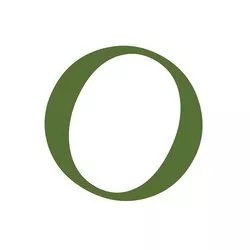- within Media, Telecoms, IT, Entertainment, Law Department Performance, Litigation and Mediation & Arbitration topic(s)
- with readers working within the Securities & Investment industries
The United Nations has suspended a visit to Australian detention facilities. They were denied access as part of a review of torture prevention across the globe. The UN now accuses Australia of a "clear breach" of the Optional Protocol to the Convention Against Torture (OPCAT) obligations.
The UN body cancelled the plans stating that the " delegation has been prevented from visiting several places where people are detained, experienced difficulties in carrying out a full visit at other locations and was not given all the relevant information and documentation it had requested."
Head of the four-member delegation, Aisha Shujune Muhammad expressed her unease and distress. She said it was "concerning" that Australia has "done little to ensure consistent implementation of OPCAT obligations," especially since, "state parties have an obligation to both receive the SPT in their territory and allow it to exercise its mandate in full, as reflected in Articles 12 and 14."
What is OPCAT (Optional Protocol to the Convention against Torture)?
This is an international agreement aimed at preventing torture and other cruel, inhuman, or degrading treatment or punishment.
The objective of OPCAT is to prevent inhumane treatment of people in detention
State Parties agree under OPCAT to:
- establish an independent National Preventive Mechanism (NPM) to inspect all places of detention and closed environments
- international inspections of detention facilities by the UN Subcommittee on the Prevention of Torture (SPT)
Greens spokesperson for Corrective Services Sue Higginson said she regularly received reports of denial of care, and has concerns about the state of NSW Prisons.
"My office regularly receives reports of denial of basic care for inmates such as the prevention of access to amenities and targeting of inmates with chronic health conditions and disabilities inside our prisons. I am gravely concerned that the NSW Government isn't worried about the safety and security of visitors but actually doesn't want these reports to reach the UN.
"The UN inspection is an important accountability mechanism to Australia upholding our international commitments and the NSW Government has shamefully failed."
The Minister tried to say the reason they don't want these inspections to happen is because the UN inspectors may arrive at youth detention centres in the middle of the night and has provided no clarity as to why this justifies banning access to all detention facilities in New South Wales.
The Minister attempted to justify prohibiting access to all detention facilities in New South Wales. They claim they do not want these inspections to take place because UN inspectors may arrive at youth detention centres in the middle of the night and has provided no clarity as to why this justifies banning access to all detention facilities in New South Wales.
"New South Wales now has a shameful mark on its international human rights record." Ms Higginson said
NSW MP calls out Government for hiding from UN torture prevention body
NSW Member of Parliament Jenny Leong called out the NSW
Government for refusing to allow UN inspectors access to NSW
Prisons. NSW is the only jurisdiction in Australia blocking the
United Nations Subcommittee access to prisons.
NSW MP Jenny Leong questioned the Government on their lack of
transparency.
"What is the NSW Liberal National Government hiding in NSW
prisons that they so desperately do not want the United Nations to
see?" Leong said.
United Nations inspectors have been granted access to prisons in
every other jurisdiction in Australia, as well as Burkina Faso,
Turkey, Mexico, Sri Lanka and across the European Union.
"Given the failures of the NSW Government to implement the
full recommendations from the Royal Commisson's Deaths in
Custody report and track record of mistreating people in prison, it
is deeply disturbing they think they are above the scrutiny of the
UN torture watchdog. " Ms Leong said.
Calls for concern
Organisations listed below all expressed for concern and "call on the NSW Government to fully cooperate with the UN OPCAT delegation."
- Public Interest Advocacy Centre (PIAC)
- Community Legal Centres NSW
- Human Rights Law Centre (HRLC)
- Amnesty International Australia
- Aboriginal Legal Service (NSW/ACT)
- First People's Disability Network Australia (FPDNA)
- Change the Record


